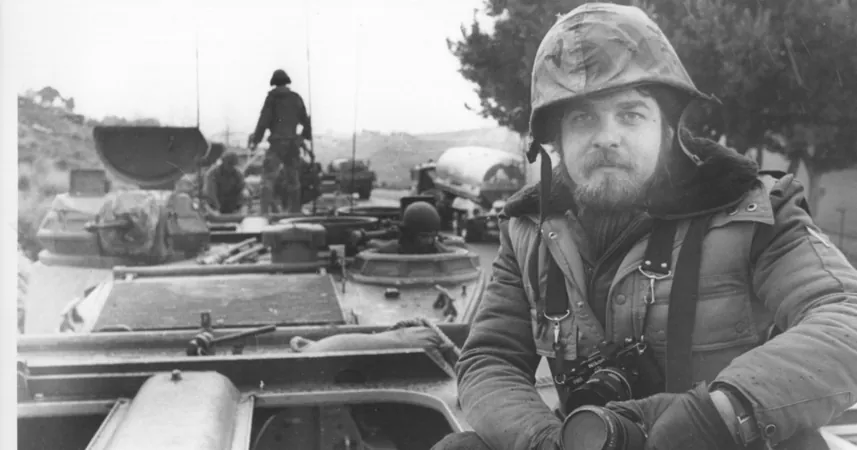
50 Years Since the Lebanese Civil War: A Photographer's Haunting Memories
2025-04-13
Author: Emma
War Unfolds in Beirut
On this fateful day in 1975, 23-year-old Claude Salhani was just starting his career as a photojournalist for the Annahar newspaper in Lebanon. At the time, his aspirations were set on capturing the stark realities of war in Vietnam. Little did he know, his home country would become the backdrop for a conflict that would change lives forever.
The Spark that Ignited a Nation
The Lebanese Civil War erupted on April 13, 1975, ignited by a brutal attack carried out by the Phalangist militia on a bus in the Ain el-Remmaneh neighborhood of Beirut. The bus was filled with Palestinians and Lebanese returning from a political rally organized by the Popular Front for the Liberation of Palestine – General Command (PFLP-GC). This assault was a retaliation against an assassination attempt on Phalangist leader Pierre Gemayel, who survived the incident but left a trail of tragedy, including the deaths of innocent civilians.
A Front Row Seat to Chaos
In the years that followed, Salhani captured the harrowing essence of the civil war. He documented the clashes between Christian and pro-Palestinian militias, the warlords behind the scenes, and the innocent victims caught in a horrifying struggle. His work was fraught with danger—he faced threats from right-wing militias, endured a kidnapping by a Palestinian faction, and suffered injuries from Israeli shelling that left him physically scarred.
Recognized Around the World
Salhani’s photographs not only graced the pages of local newspapers but also gained international acclaim, appearing on the covers of major publications such as Time and Newsweek. His most poignant image, which earned him a Pulitzer Prize nomination in 1983, depicted a young man in U.S. military fatigues shedding tears after a deadly bombing that claimed the lives of more than 240 American servicemen.
The Heartache of Leaving Home
By 1984, Salhani could no longer bear to witness the devastation of his beloved Beirut and left, vowing never to return. However, in 2000, he visited his homeland, later making occasional trips back until his passing in 2022 in Paris at the age of 70. Until his final days, Salhani reminisced about his connection to Lebanon, a place that remained etched in his heart despite the scars of war.
A Legacy Remembered
As we reflect on the 50-year anniversary of the Lebanese Civil War, Salhani’s vivid memories and powerful images serve as a chilling reminder of the conflict's profound impact. His haunting documentation not only tells the story of a nation in turmoil but also honors the resilience of those who lived through one of the darkest chapters in Lebanese history.









 Brasil (PT)
Brasil (PT)
 Canada (EN)
Canada (EN)
 Chile (ES)
Chile (ES)
 Česko (CS)
Česko (CS)
 대한민국 (KO)
대한민국 (KO)
 España (ES)
España (ES)
 France (FR)
France (FR)
 Hong Kong (EN)
Hong Kong (EN)
 Italia (IT)
Italia (IT)
 日本 (JA)
日本 (JA)
 Magyarország (HU)
Magyarország (HU)
 Norge (NO)
Norge (NO)
 Polska (PL)
Polska (PL)
 Schweiz (DE)
Schweiz (DE)
 Singapore (EN)
Singapore (EN)
 Sverige (SV)
Sverige (SV)
 Suomi (FI)
Suomi (FI)
 Türkiye (TR)
Türkiye (TR)
 الإمارات العربية المتحدة (AR)
الإمارات العربية المتحدة (AR)